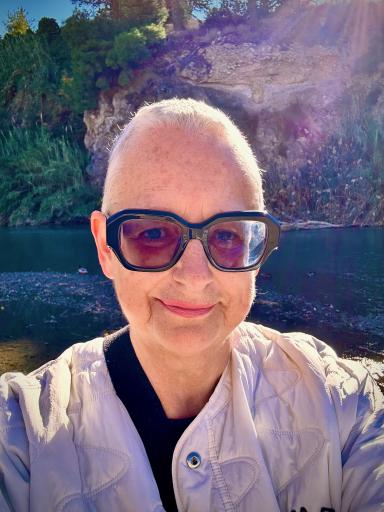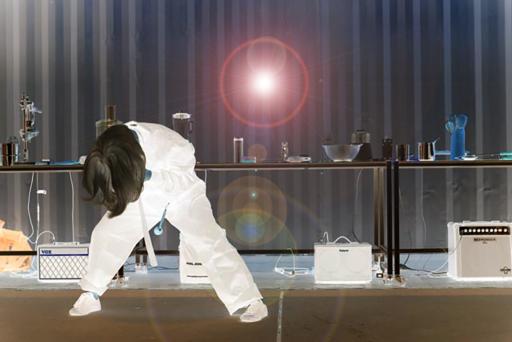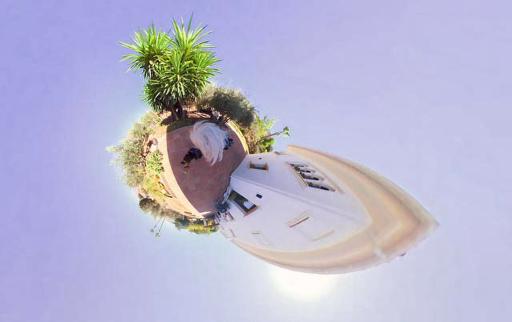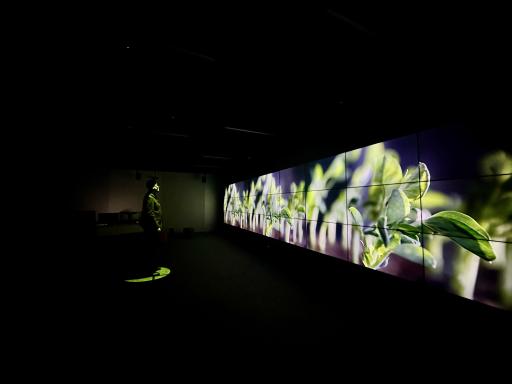
Juliana España Keller, PhD, Arts and Philosophy
- Professor, IMCA (Intermedia & CyberArts), Studio Arts
- Professor, Department of Painting and Drawing, Studio Arts
- Lecturer, ARTT (Art Theory & Academic Discourse), Studio Arts
- Professor/Lecturer, MFA Graduate Program: Deep Listening Practices, Studio Arts
- Senior Researcher and Writer, Centre for Sensory Studies
Status: Pronouns: she/her/elle
Are you the profile owner?
Sign in to editResearch areas: Feminist New Materialism, Posthumanities, Posthuman Knowledge, Social Sciences & Visual Arts Critical Theory
Contact information
Biography
Areas of Expertise
areas of expertise: sound performance and electronic arts,
modular synthesis, performance art practices, intermedia & immersive sound and interactive media. deep listening practices.
research topics: Feminist New Materialism, Posthumanism, Critical Posthumanities, Environmental Humanities.
keywords:
making kin, the posthuman, critical posthuman knowledges, the environmental humanities, the capitalocene, eco-feminist & intersectional theory, social engagement, public spatial practices, visual arts and all forms of experimental sonic art practices.
Research interests
SELECTED ARTISTIC RESEARCH PROJECTS
SAT (SOCIETY FOR ARTS & TECHNOLOGY) (2026)
RESEARCH PROJECT: "SOUND TO SIGNAL".
Creation of an open-source multi-controller, stand-alone prototype device with multi-channel bio-sensory audio-capture.
CARPA 9 CONFERENCE ON “ECOLOGICAL DESIGN AND PERFORMANCE PEDAGOGIES – SUSTAINABLE PRACTICES AND INTERDISCIPLINARY ACTS IN A CLIMATE CHANGED WORLD” (2025), UNIARTS, HELSINKI, FINLAND.
Sound performance and paper presentation on: “MYCELIO: Entering into a Sonic Intra-Active Quantum Relation with Plant Life”.
PHD EXAMINER: “THE INTENSITY OF MATTER: THE INHUMAN AFFECTS OF GEOLOGICAL PERFORMANCE” (2025).
The Doctoral Programme Committee of the Aalto University School of Arts, Design and Architecture, Aalto University, Finland (2025).
UNCOMMON SENSES V: SENSING THE SOCIAL, THE ENVIRONMENTAL, AND
ACROSS THE ARTS AND SCIENCES, CONCORDIA UNIVERSITY,
CENTRE FOR SENSORY STUDIES, MONTREAL, QUEBEC, CANADA (2025).
Conference: Concordia University. Paper Presentation on the research-creation project: “Liquid Breath” as an interactive audio-visual installation, Visualization Design Studios.
PELIGRO19 FESTIVAL (2024), MALAGA, SPAIN.
Immersive AI-assisted AV performance: “MYCELIO” with CEREUS: acoustic ecologies of the anthropocene.
PHI CENTRE, MONTREAL, QUEBEC, CANADA (2024).
“Nuit Blanche” live sound performance as part of the “Rikrit Tiravanija” installation: “JOUE/PLAY”.
ROTA FESTIVAL (2023), AADK, BLANCA, MURCIA, SPAIN.
RESIDENCY: Plant life synthesis and performative installation.
LISTENING ACADEMY, UNIVERSITY OF APPLIED SCIENCES & ARTS, NW,
BASEL, SWITZERLAND WITH BRANDON LABELLE & BUDHADITYA CHATTOPADHYAY. “Fountain”, a sonic meditation for Pauline Oliveros (2023).
SPAZJU KREATTIV MUSEUM, VALETTA, MALTA (2023):
“Possible Worlds” Exhibition, Sound installation with plant intelligence. Children’s workshop as part of the exhibition.
Education
PhD, Arts and Philosophy, The Victorian College of the Arts,
The University of Melbourne, Victoria, Australia (2015 – 2020).
MFA, Sculpture, Studio Arts, Concordia University (2000 - 2003).
BFA, Painting & Drawing, Studio Arts, Concordia University (1997 - 2000).
Biography
Juliana Espana Keller is a transdisciplinary artist and researcher whose work explores embodied knowledge through immersive, multisensory environments. Her practice engages sound, movement, performative installation, and ecological inquiry to investigate how the human body interfaces with non-human systems, often challenging dominant visual regimes through sensorial and spatial immersion.
She holds a PhD in Art & Process Philosophy and her work is informed by feminist science studies, sensory anthropology, and acoustic ecologies. Collaboration is central to her methodology working with scientists, choreographers, and technologists to develop experiential installations that expand how we perceive and interact with our surroundings.
A central project in her recent practice is: "Liquid Breath", an immersive interactive installation exploring plant sensing, interspecies communication, and the complex exchanges between botanical life and human breath. Using hydroacoustic recordings, biosensors, and responsive audio environments, the work reveals the subtle vibrational worlds of plant life, inviting viewers into an atmospheric, reciprocal space of listening and
attunement.
She/Her has accrued an expansive body of scholarly publications in artistic research in leading peer-reviewed journals. She is the Director and Founder of “Bajo el Olivo Creative Artist Residency: in the area of Malaga, Spain. This curatorial project is an on-going platform.

sonic electric melbourne (2017)
©jonathan sinatra

(360) Video: Bajo El Olivo
Juliana Espana Keller

"Liquid Breath" 2025
©julianaespanakeller
Publications
Entering Into a Sonic Intra-Active Quantum Relation with Plant Life
In the speculative research of plant bioacoustics, one enters into a sonic intra-active relation, by humans with non-human beings (plant life), activated through acoustic wave signals emitted by plants to create electronic patterns of sounds composed by humans and emitted by machines. Plants emit sound waves at relatively low frequencies of 50-120 Hz. Experimenting with patching and modulation by tracking these sonic lines of data can indeed lead to unique sonic experiences that tap into the universe’s musicology. It is fascinating how we can interact with sounds on such a deep level to create acoustic energy.
We are and have always been attached to the universe in a relational processual way. We are all interconnected with plant life vibrating at different internal frequencies. This article focuses on a symbiotic relation between humans and plant life as an acoustic shimmering ecologyto communicate a posthuman, symbiotic understanding of vegetal matter as a morphological force that (re)shapes, (re)affirms our sonic intra-relations to the natural world. This proposition is molecular and metaphysical, as sound matter is of a qualitative multiplicity in the quantum field of listening. By acknowledging ontologically that cosmopolitics brings into relation different practices, practitioners, and the non-human (they assemble in a field of forces and intensities), I argue that there is no sovereign power under which all modes of existence can be organized, and there is no metalanguage through which one can master the diversity of all discursive or material practices; but there are intra-relations in which one can get lost in a quantum field of sonic matter by moving into the cracks of the sensorium and the plant biosphere, which includes Indigenous voices.
The alterity of plant life is daunting from an eco-feminist materialist position in that relationships are the default state of existence and sonic experiences uncover alternative or additional explanations in a (post)phenomenological world which is embedded in the stuff of acoustics in the many ways humans hear the world. Thus, to communicate a posthuman, symbiotic understanding of vegetal matter necessitates understanding how sound matter intra-performs through a sonic language where intra-relations with plant life have complex boundaries for humans. As a creative practitioner, how does one define the mutually beneficial engagement in plant communication with creative musical encounters? Entanglement is messy and a becoming with the universe as a philosophical sonic meditation and worlding. This entails expanding on plants as cosmogonic beings, world builders, and we, perhaps, are the byproducts of the lives of our vegetal others.
Book Review: Musical Encounters with Deleuze and Guattari. New Materialism. The mattering of the arts, crafts, and aesthetics. The Polish Journal of Aesthetics. Nr. 57 (2/2020)
This book review discusses the volume: Musical Encounters with Deleuze and Guattari (2017), edited by Pirkko Moisala, Taru Leppänen, Milla Tiainen, and Hanna Väätäinen. This polyphonic title concentrates on Deleuzian-Guattarian research as well as elaborations on Spinozian metaphysics. The book’s multisensory expanse of subjects in feminist new materialisms encompasses, among others, music and sound studies, expanded listening, dance, dis/ability, semiotics, and ethnography. The work provides vital attention to concepts such as affect, becoming, and assemblages, including different ways of moving and conceiving across contemporary creative practices.
https://pjaesthetics.uj.edu.pl/pl_PL/archives/-/journal_content/56_INSTANCE_r1lnMup4DOPq/138618288/146139866
The Sonic Intra-face of a Noisy Feminist Kitchen
This paper asks what is the value of transforming the kitchen into a sonic performative work and public site for art and social practice. A Public Kitchen is formed by recreating the private and
https://www.mdpi.com/2076-0760/8/9/245
GRETA//A PLASTIC POEM: An Integrated Approach to the Vibrant Matter of Voice, Deep Listening, and Somatic Movement in Sonic Performance Art as Plastic Activism
Through an analysis of the sonic performance artwork GRETA//A PLASTIC POEM (2020), this paper analyzes why and when participatory art practices can intra-sect and converge with ecologies to imagine posthuman futures and challenge pre-existing structures of thought. From an activist position that considers art and the environment as a participatory collective model, this article argues for a reappraisal of human influence in complex human-non-human interactional systems. More specifically, this text, as a component of GRETA//A PLASTIC POEM, approaches oceanic and sea pollution (notably the dumping of plastics) as a form of environmental degradation that has generated a space inhabited by varied and vibrant forms of matter. In this way, the sea and the sonic space show strikingly similar potentials. In turn, Plastic Activism, which advocates for a world free of plastic pollution and its toxic impacts, is adopted as an underlying ethos and aesthetic response, with single-use plastics being incorporated into the performance artwork itself. Relational to this enquiry is sensing how we use our bodies to explore the potential thousands of distinct material ecologies embodying a sonic performative practice, especially combining the materiality of artistic and political action in public space and focal practices. In this way, the sonic space becomes comparable to a sea of sound, where complex assemblages of matter exist and intra-act to challenge the discordant systems and dynamics in which we are currently entangled.
Teaching activities
CART 210: (NEW MEDIA THEORY)
PTNG 300, INTERMEDIATE PAINTING STUDIO
PTNG 398/498, SPECIAL TOPICS: LIFE IN THE ROUND
PTNG 398/498, SPECIAL TOPICS: THE ANATOMY OF PAINT
PTNG 398/408, SPECIAL TOPICS: GLASS PALETTES (DIGITAL TO ANALOG PAINTING)
IMCA 210 (Introduction to Video Production)
IMCA 332 (Performance Art Practices & Video Performance Production)
IMCA 400 (Advanced Practices in Intermedia & Cyber Art)
ARTT 398 (Topics/Studio Practice: Ideas and Issues, Artistic Praxis & Language)
ASEM 652 (Deep Listening Practices Seminar) MFA Program.

